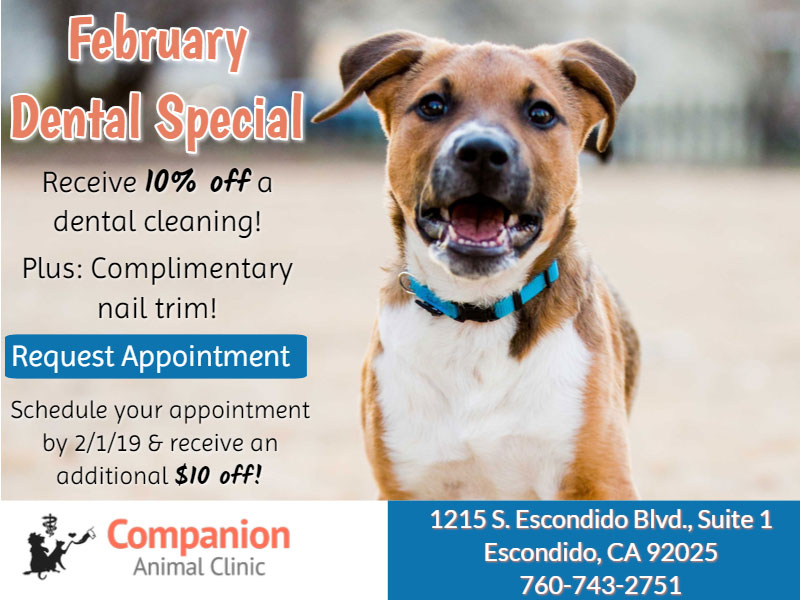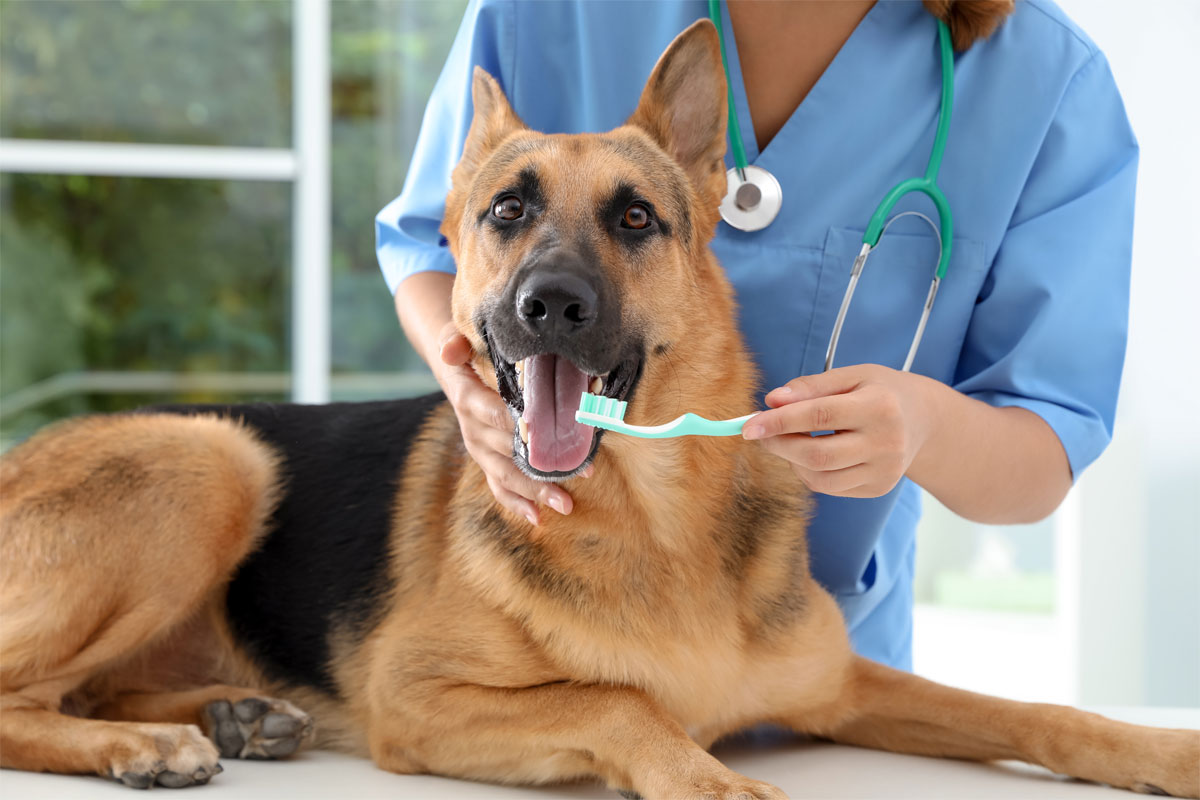
Sure, you might already think brushing and flossing your own teeth twice a day is a hassle, but if you have pets, you should add their chompers to your daily routine, too.
Why Oral Hygiene Is Essential to Your Pet’s Health
Left unattended, cats’ and dogs’ teeth gather plaque and tartar – just like a human’s pearly whites. This build up on the surface of the teeth creates pockets between the teeth and gums, where harmful bacteria grow and thrive. Left untreated, this bacterial growth becomes periodontal (gum) disease, which can lead to serious health problems (like organ damage, blood infections and death) for your pet.
In addition to gum disease, poor oral hygiene can cause other problems for your pets, such as painful cavities, abscesses and broken teeth.
Signs of Periodontal Disease and Other Oral Health Problems
- Bad breath
- Loose or broken teeth
- Discolored teeth
- Red, inflamed gums
- Abnormal eating and drinking
- Loss of appetite
- Frequently dropping toys or kibble
- Bleeding
Professional Pet Dental Care with an Experienced Veterinarian
A dental appointment for a cat or dog is similar to a human’s dental appointment. It includes an examination and a professional cleaning. During your pet’s appointment, our veterinarian will examine your pet’s teeth and gums, looking for signs of periodontal disease, cavities, broken teeth or other concerns. We will then remove the plaque and tartar from your pet’s teeth with a professional cleaning. Our veterinarian will consult with you, if any further treatments are needed, such as tooth extractions. Pet dental appointments typically need to be performed with your pet under general anesthesia to ensure your pet’s safety and prevent anxiety.

Caring for Your Pet’s Teeth Between Dental Appointments
Just like it’s important for you to brush your teeth in between visits to your dentist, pets also need their dental hygiene attended to. The most effective thing you can do to maintain the health of your pet’s teeth and gums, is brushing. Daily is best, but brushing several days a week will also have a big impact on plaque and tartar build up. Be sure you use a pet-friendly toothbrush and toothpaste formulated for cats and dogs. In addition to brushing your pet’s teeth, you can also talk with our veterinarian at Companion Animal Clinic about adding kibble and treats, specially formulated for dental health, to your pet’s diet.






